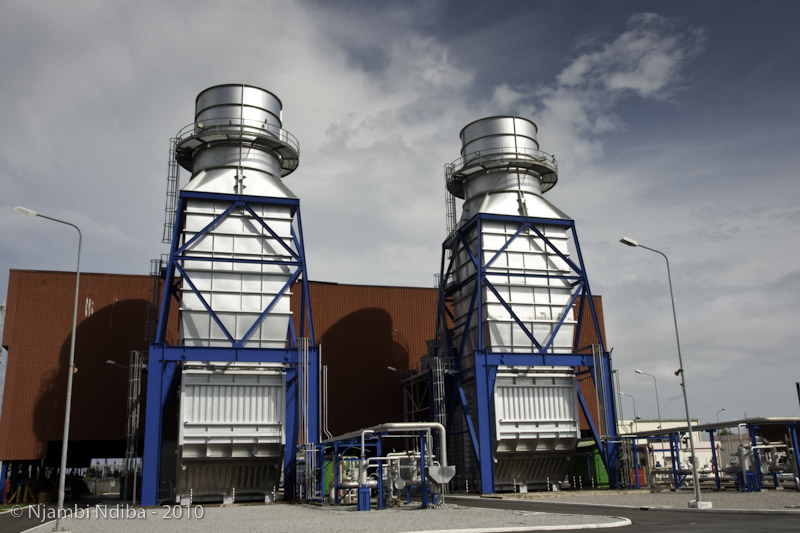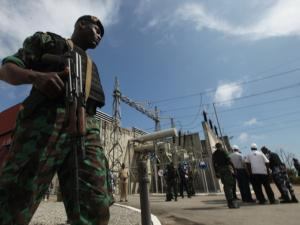Azito Energie power expansion - IJ Awards 2013 Power deal of the year
Reaching close just a year after Ivory Coast emerged from civil war, the Azito Energie expansion project is a pathfinder development that could pave the way for more project financings in the West African power sector.
While its US$430 million project cost is not astronomical, and the well-trodden method of sourcing debt through a club of multilateral and development financial institutions nothing out of the ordinary for an emerging market project, the political and security context was far from normal – as evidenced by an attack on the station by armed militants just three days before financial close.
In all, financing took just over a year – an impressive feat in any sub-Saharan country. Azito shows that reliable sponsors forming long-term relationships with national authorities and lenders can produce results in a location many investors would balk at entering. As one lender puts it: “The fundamentals were good and the sponsors were outstanding”.
Technical
The project is technically not that complex, say sponsors. It consists of the conversion of an existing open-cycle gas-fired power plant, first commissioned as an independent power producer (IPP) in 1999 with a capacity of 2 x 144 MW, into a combined-cycle power plant, adding approximately 140 MW to give a total capacity of about 430 MW. Following a tender, Hyundai E&C of South Korea was selected as the EPC contractor.
Completion is expected for early 2015 and in the process Azito will become the mainstay of around 40 per cent of the country’s power generation. With Ivory Coast an exporter of electricity its importance underpinning the country’s reconstruction cannot be understated.
Financing
The real challenge came at financing. Developer Globeleq, an entity owned by private equity energy fund Actis, owns a 77 per cent stake in the project company with the balance held by IPS. The capital structure for the expansion was split between debt and equity on an 80:20 basis; this ratio falls to 70:30 when accounting for equity previously committed, taking the total equity component to US$150 million.
Due to the political instability overshadowing the country, sponsors unsurprisingly turned towards multilaterals and DFIs for the debt portion. Leading the pack was the International Finance Corporation (IFC), the private-sector arm of the World Bank, which acted as sole arranger and global co-ordinator on a project it had been involved with since inception in 1997. It took a US$125 million chunk of the overall US$330 million non-recourse debt package on a 15.5 year tenor, a backing and sign of confidence which acted as an enabler for the other lenders to provide long maturities.
Next came the West African Development Bank, whose role in arranging the US$50 million local currency tranche was crucial. Tied to the euro, the interest rate on this tranche is locked-in during construction meaning movements in exchange rates won’t affect the developer. Equally of note is the 15-year tenor the bank provided, which may bode well for future developments in the region backed by a sponsor with a solid track record.
Other lenders in the managed, but separate, club deal included France’s Proparco, which also arranged the DFI facilities, on a ticket of US$33 million; the Netherland’s FMO (US$37 million); DEG of Germany (US$25 million); and Belgium’s BIO (US$30 million). Meanwhile IFC’s Emerging Africa Infrastructure debt fund furnished US$30 million. One European commercial bank had initially signalled interest however later pulled out after it changed its strategic focus on the continent. IFC is now looking to syndicate out some of its ticket to local players keen to gain exposure to the development.
Amortising repayments on the loan will begin six months after construction.
Pricing and tenor
Certainly, the IFC’s key involvement was instrumental in allowing for a pricing highly favourable to developers. The margin for the six lenders’ separate tranches is around 450bps over 6-month LIBOR, with some stepping up to 750bps. This was the same for both dollar and local currency facilities, said to be a novelty in the region. All of the debt is senior, subject to some minor exceptions, on a pari passu basis all the way through, with disbursements to be made to the project company every two months.
Taking into account all hedges and swaps, the effective cost to the borrowers stands at less than 7 per cent – an incredibly low cost of capital given the relative paucity of infrastructure in Ivory Coast and the recent political instability of the country. On top of this insurance was provided by MIGA. As a result sponsors do not anticipate any need for refinancing during the lifetime of the loan.
Offtake and feedstock
As with many emerging markets, a key concern was the credit quality of the offtakers and the reliability of the plant feedstock. These were both secured largely thanks to long-established relationship with the Ivorian authorities.
Power is to be purchased on a 20-year tolling agreement whereby the government takes the responsibility of supplying the gas and indirectly pays for the electricity through CIE, Ivory Coast’s privately-owned energy company.
Gas is being supplied from indigenous Ivorian fields by pipeline. Negotiations with the government led to prices not being tied to oil, resulting in lower fuel prices that should ultimately benefit the consumer and decrease the likelihood of default on the power purchase agreement.
Social and economic benefits
Azito is set to create at least 1,000 jobs over the next three years and a corollary benefit of the project is that the government has now committed to a large-scale exploration programme to extend gas supplies both in time and volume. If successful, it could give a welcome fillip to two more IPPs that Ivorian authorities have planned.
Compared to neighbour Nigeria, a much larger country where despite an abundance of hydrocarbon resources load shedding is permanent, the development leaves Ivory Coast’s economy in rude health as it becomes an exporter of power, turning a page in its history.
Advisory roles
On the developers’ side, BNP Paribas acted as financial advisor and Linklaters worked on the legal side alongside Jones Day.
To the lenders Clifford Chance provided legal advice.
ERM acted as environmental consultant and PB Power was market and technical consultant.
Request a Demo
Interested in IJGlobal? Request a demo to discuss a trial with a member of our team. Talk to the team to explore the value of our asset and transaction databases, our market-leading news, league tables and much more.



